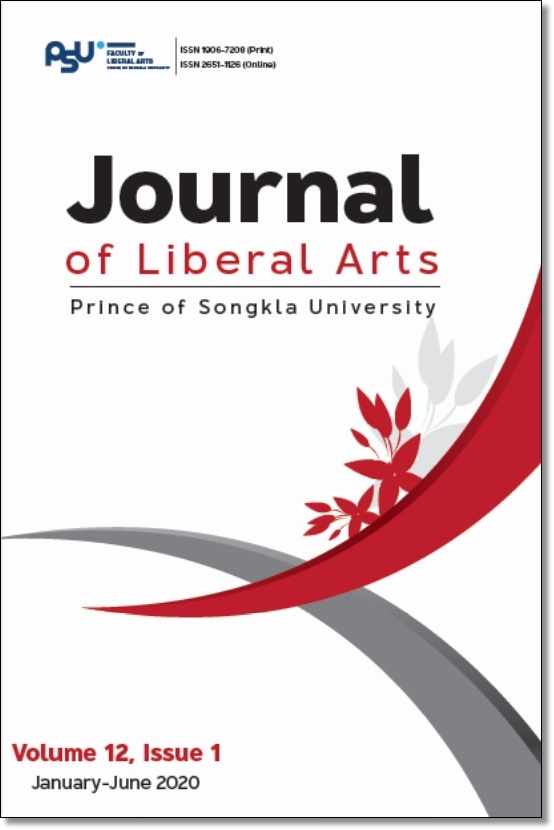The Outstanding Characteristics of the Junior Primary Education Thai Basic Vocabulary List Books Based on Local Stories by Teachers in the Three Southern Border Provinces
Keywords:
Junior Primary Education, Thai Basic Vocabulary List Books, three southern border provincesAbstract
The purpose of this article was to study 4 outstanding characteristics of the Junior Primary Education Thai Basic Vocabulary List Books: 1) the content of the books that enables teachers and students to connect with one another through the context of the three southern border provinces; 2) university teachers acting as mentors; 3) the books’ greater emphasis on vocabulary and pictures; and 4) the construct of the books and their categories. To analyze the books, qualitative and action research methods were conducted. Moreover, the concept of specific textbook consideration was employed as the research framework, and descriptive analysis was done in the discussion section.
The findings revealed that the books under discussion have three outstanding characteristics: 1) that the teachers and students live in the three southern border provinces enables the teachers to design lessons appropriate for their students who use Patani Malay as the mother tongue and Thai as the second language; 2) that the university mentors work in the same areas as the teachers and provide the knowledge of educational psychology, Thai principles and teaching Thai as the second language for them enables the teachers to incorporate their local contexts into the reading practices and to construct the sentences by using the basic vocabulary bank which is in accordance with the students’ experiences; 3) not only can these books that are based on everyday life give the students pleasure, but also they help them memorize vocabulary words well since the words that are usually misspelled and mispronounced are highlighted in these books; and 4) although the construct and content management of the books of each educational level vary according to the learning units as set by the Ministry of Education, these books that are based on the community contexts enable the students to practice reading and writing and to learn Thai vocabulary, while at the same time making them enjoy their familiar lifestyles in southern Thailand. All of these characteristics therefore strengthen the effectiveness of learning Thai among the students in the three southern border provinces.
References
Jankaew, R., Chomchuen, A., & Numun, W. (2016). Effects of learning activities using graphic organizer techniques on critical thinking, learning achievement and retention in thai literature of grade 7 students. Journal of Education Prince of Songkla University, 27(2), 165-178. [in Thai]
Jansawang, C. (2007). A comparison of learning achievement and retention of students using Malay dialectas the mother tongue by computer-assisted instruction with thai narration and bilingual narration [Unpublished master’s thesis]. Prince of Songkla University, Pattani Campus. [in Thai]
Lower Southern Office of the Higher Education and Commission Higher Education Development Network: Songkhla. (2019). Prathomsuksa 1: Basic vocabulary list. [in Thai]
Nilsuk, P. & Phetmanee, N. (2010). Media and education technology for developing education. Academic Services Journal, Prince of Songkla University, 21(3), 107-118. [in Thai]
Office of the Higher Education CommissionLower Southern Higher Education Development Network: Songkhla. (2019). Prathomsuksa 2: Basic vocabulary list. [in Thai]
Petcharaporn, K. (2018). Learning native language and second language. Psychology for Teachers. http:///C:/Users/LA/Downloads/Documents/_6_.pdf [in Thai]
Watcharasukum, S. (2012). Problems in using Thai language from Thai - Malaya students in three southernmost provinces. http://wb.yru.ac.th/handle/yru/182 [in Thai]
Yousimarak, C. (2010, August 19). Research can solve education’s problems in southern border provinces. Daily News. [in Thai]
Downloads
Published
How to Cite
Issue
Section
License
The authors retain the copyright to their article but the Journal of Liberal Arts, Prince of Songkla University reserves the exclusive rights to first publication.






